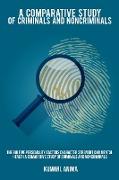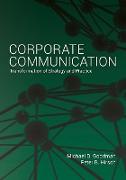- Start
- The Big Five Personality Factors Character Strength and Mental Health A Comparative Study of Criminals and Noncriminals
The Big Five Personality Factors Character Strength and Mental Health A Comparative Study of Criminals and Noncriminals
Angebote / Angebote:
Crime and the Criminal Crime can be understood more appropriately in strict legal sense rather than any other vague meaning. However, psychological as well as social components are sine quo non of a complete definition of crime. Therefore, crime may be defined as an anti legal act having an anti social dimension that is committed by one or more than one person, intentionally and voluntarily. Sir William Blackstone, a prominent jurist from England, wrote four volumes of 'Commentaries on Law of England' between 1765- 1769. He defined crime as "an act committed or omitted in violation of public law forbidding or commanding it" (as cited in Boorstin, 1996). By the term public law he meant law that protects public rights. In next version of his book, he included violation of public duties along with public rights (Stacey, 2003, Morrison, 2001). Stephen (1863, 1873) was another jurist from England who defined crime with some modification in Blackstone's definition. According to him "crime is a violation of a right considered in reference to the evil tendency of such violation as regards the community at large." In this way, moral side of the conduct was also included in definition of crime. Evil tendency indicated about the intention to damage community welfare. Stephen discussed dilemma of criminal responsibility too (Morse, 2008). Both the above mentioned jurists included the concepts of social harm, immorality, and public rights in their writings. However, every immoral act is not necessarily a crime. Similarly, sometimes an act does not violate any other person's rights, but categorized as crime because it is prohibited by the law of the state (e.g., illegal drug intake, suicide).
Fremdlagertitel. Lieferzeit unbestimmt



